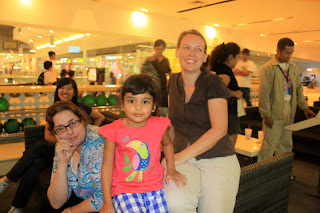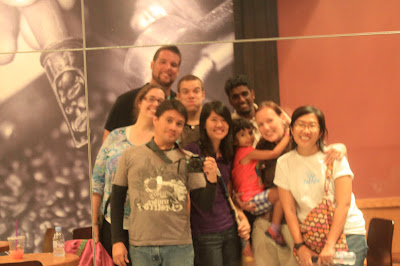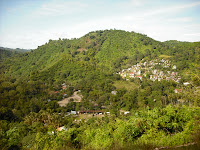During the six-day voyage from Singapore to the Philippines, the crew of the Logos Hope underwent training and information to prepare us for the Philippines. The three Filipino’s onboard taught us about their culture, taught us language basics, introduced us to the concept of ‘balut’, showed us the acceptable way to behave in a jeepney, explained that a toilet is not to be found in the non-existent concept of a bathroom but rather in the CR – ‘Comfort Room’ and many other things.
As part of our training, we needed to understand more about true poverty, as we were preparing to enter a country facing greater poverty than many of us understood existed. A team onboard consisting mainly of those who had been through the Philippines with previous OM ships prepared a poverty simulation.
The evening began when our usual dinner was not served, and we were given the option of rice and baked beans. The usual ‘secret stash’ of bread and jam available 24/7 as wanted was removed; the juice drained from the machine and tea, coffee, milk and sugar was made unavailable.
The Logos Lounge, one of our main meeting rooms, was transformed into a city. Upon entry, we were separated into groups and given a space to sit upon the tarps laid out over the floor. With seven people per ‘family’, 5 families were put together under one landlord. We were given piles of newspaper and a bucket of glue made from flour and water and instructed on how to create paper bags.
 |
| My family's 'dad' trying to get a good price for our bags. |
The evening was split into three sessions of 15mins, each session representing a week of life. Our goal was to make as many paper bags as possible in each family, as each group of ten could be sold to any of the shops lining the outer edge of the room. Each shop would pay different amounts depending on their generosity and the quality of the bags made. At random moments, one particular area could be affected by a flash flood, or a new shopping centre being constructed which forced all occupants of that area to move and find new housing with other families. Opportunities were also given for one person to go to the clinic; we wouldn’t know what would happen there, but once money was given and another time medicine was given – this proved valuable when later malaria hit the entire city and those who hadn’t received medicine each lost a family member and a pair of hands that had been contributing towards income.
 |
| The brothel managers |
At the end of each ‘week’, rent was due to the landlords for food and rent. If you were unable to pay, you would be sent to the garbage tip where you were at the mercy of the gang leaders. Throughout the evening, it was possible to sell items of clothing to shop owners, perform favours such as massages or shoe cleaning for your landlord for cheaper rent or jewellery could be sold at a price. There were also helpful people who would willingly give the daughters promising jobs as secretaries where they could send home money to help support their families. What the girls and their families were unaware of, was that ‘secretary’ was actually code for prostitute.
 |
The garbage tip where you were sent if you couldn't
pay for food and rent. |
It was a very interesting experience. Although only a simulation and to many it felt like a game, what we learnt was eye-opening. Some had traumatic experiences like being sent to the gang-leaders at the tip, and others when completely destitute had to face the possibility of selling their daughters. One of my friends shared that as ‘mum’, she had sent her daughter to get what she thought was a good job, but was incredibly traumatised once she realised she had in fact sold her daughter into prostitution.
 |
| Gang leaders at the tip |
 |
| My family and I making our paper bags. |
My family did very well – we stayed together, we paid for rent and food each week, nobody was sick, sold or kidnapped and we even managed to afford to send a child to school (our goal for the end of the three weeks). However, even though we had achieved this, I realised what was still lacking. We had been so focussed on quickly making the bags and selling them that there was no quality time as a family – discussion revolved around encouraging each other to go faster, counting how many bags, counting how much money and sending dad off to sell the bags.
As a Christian family, although we loved God, we didn’t have time to read the Bible or sit and have theological discussions. Our minds weren’t even focussed to pray – we were just determined to stay alive! This opened our eyes to how challenging it is to live in poverty and to the need to address the physical needs. It is all very well to tell people that Jesus loves them, give them bibles, encourage them to read them and discuss but that is not always possible!
This is where the ‘help’ part of the Logos Hope’s motto of bringing knowledge, help and hope to the world is so important. It is very well to think nice thoughts and say nice words, but that won’t feed or clothe people. Here I am learning how to focus on meeting the needs. As Jesus remains the centre of my life (I wouldn’t be here loving and helping these people if God hadn’t brought me to the ship), that has to shine out through my life. People will see the love that I have for them, and as I spend time with them then the rest will come, as they are ready. Jesus knows what these people are going through and will meet them where they are.
 |
| Beggars trying to busk for money. |
 |
One of many shops where we could attempt to
sell our bags. |


























































